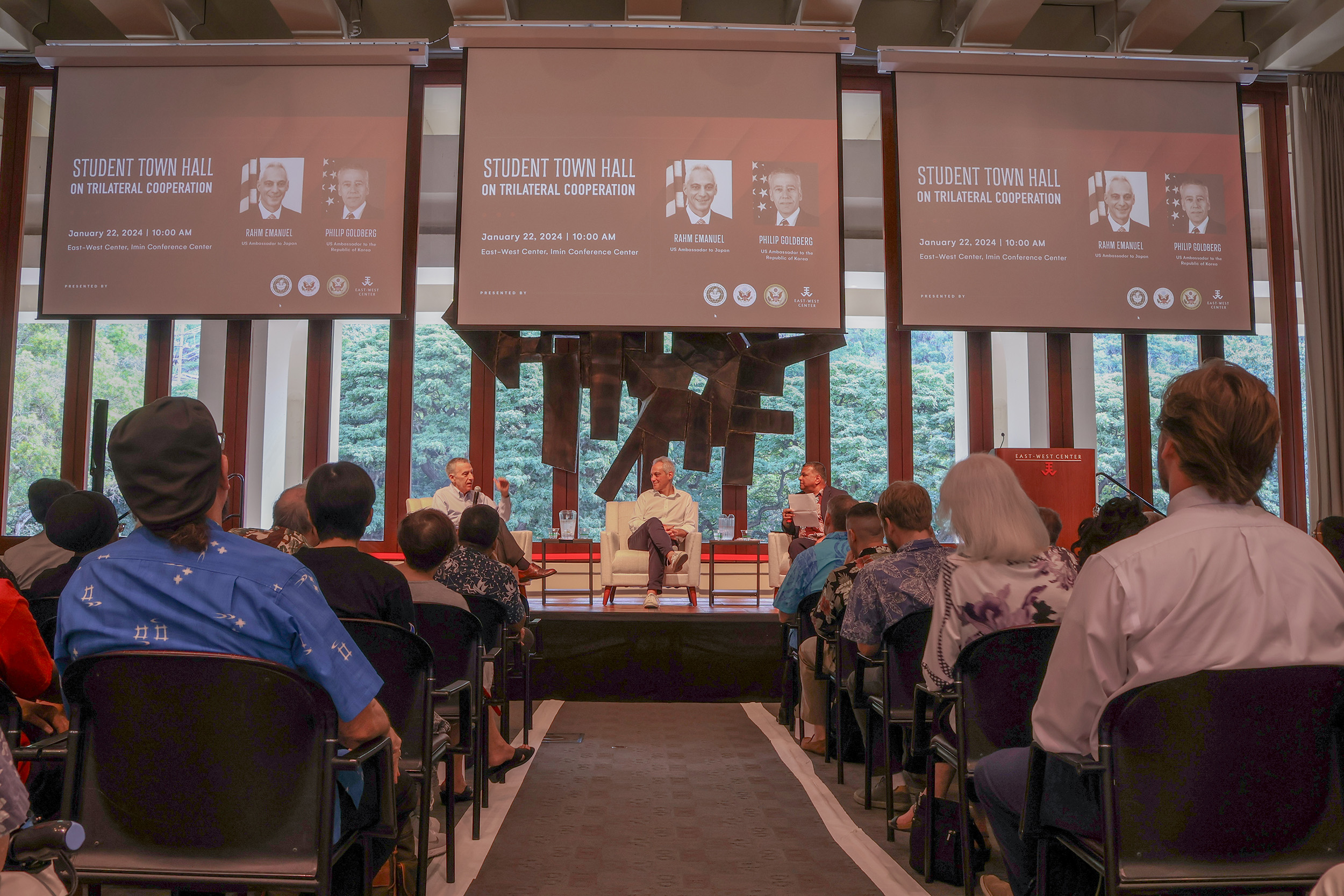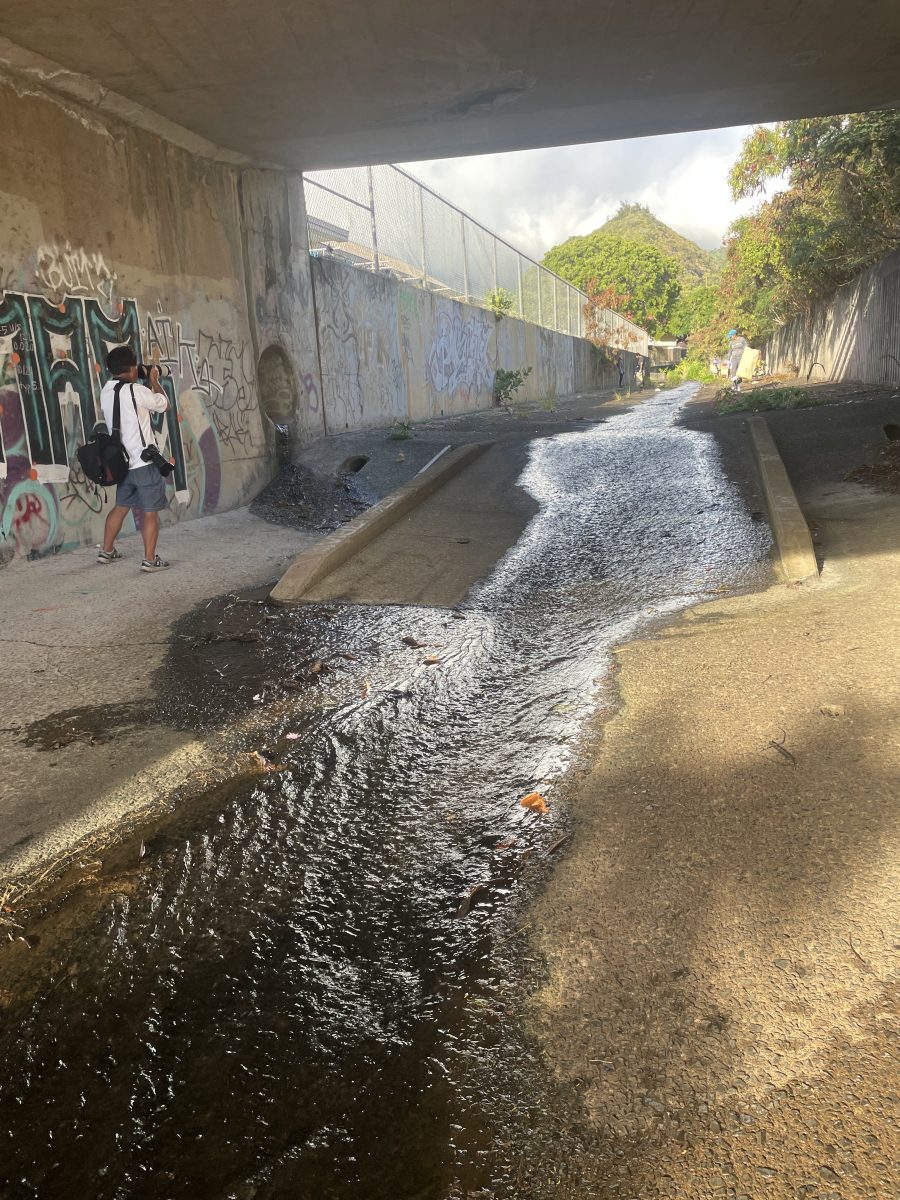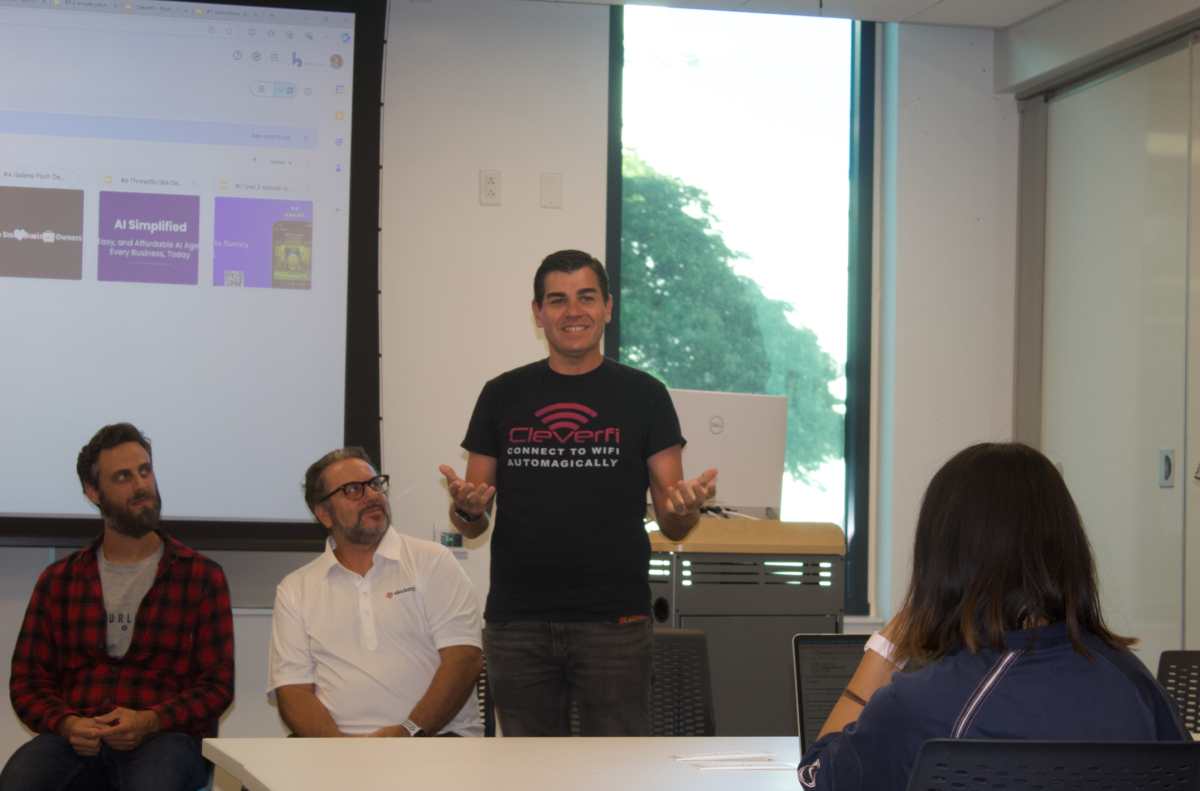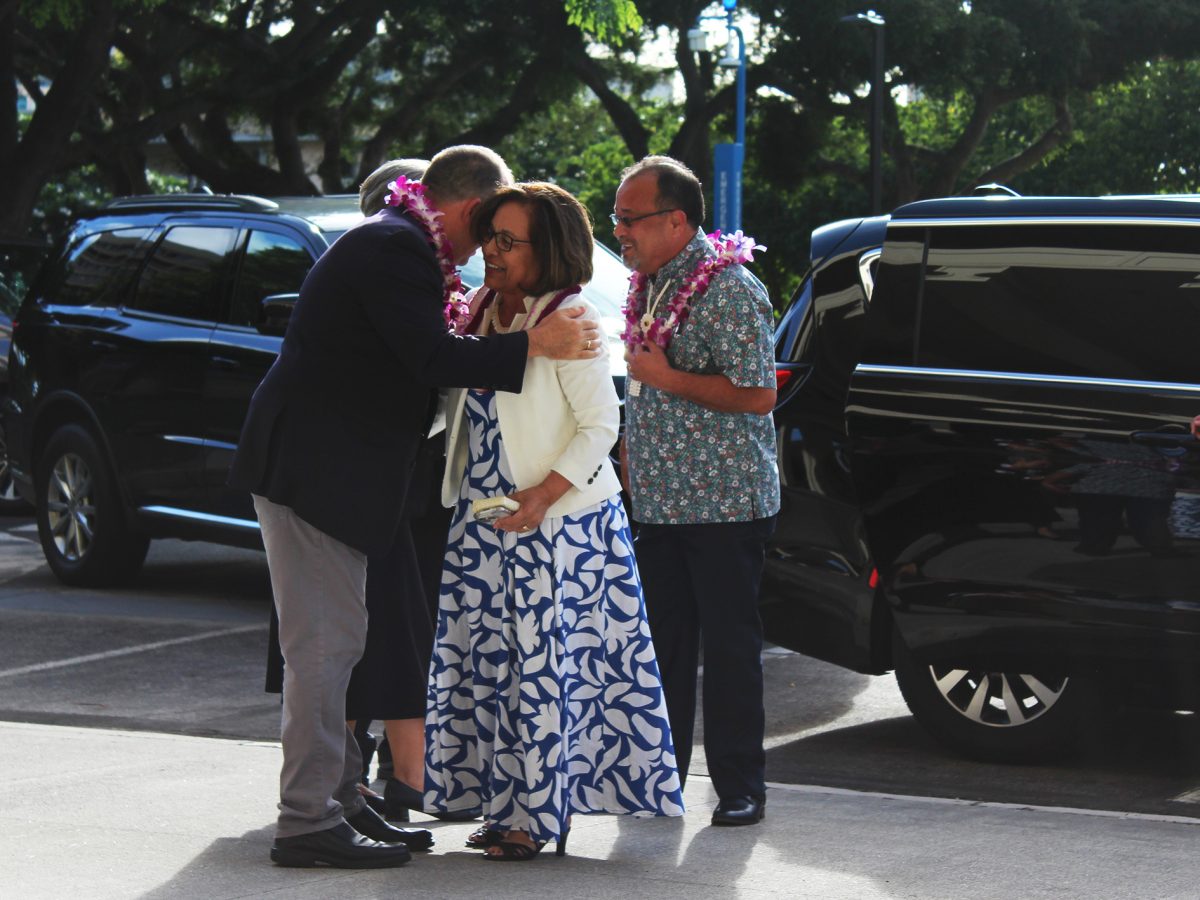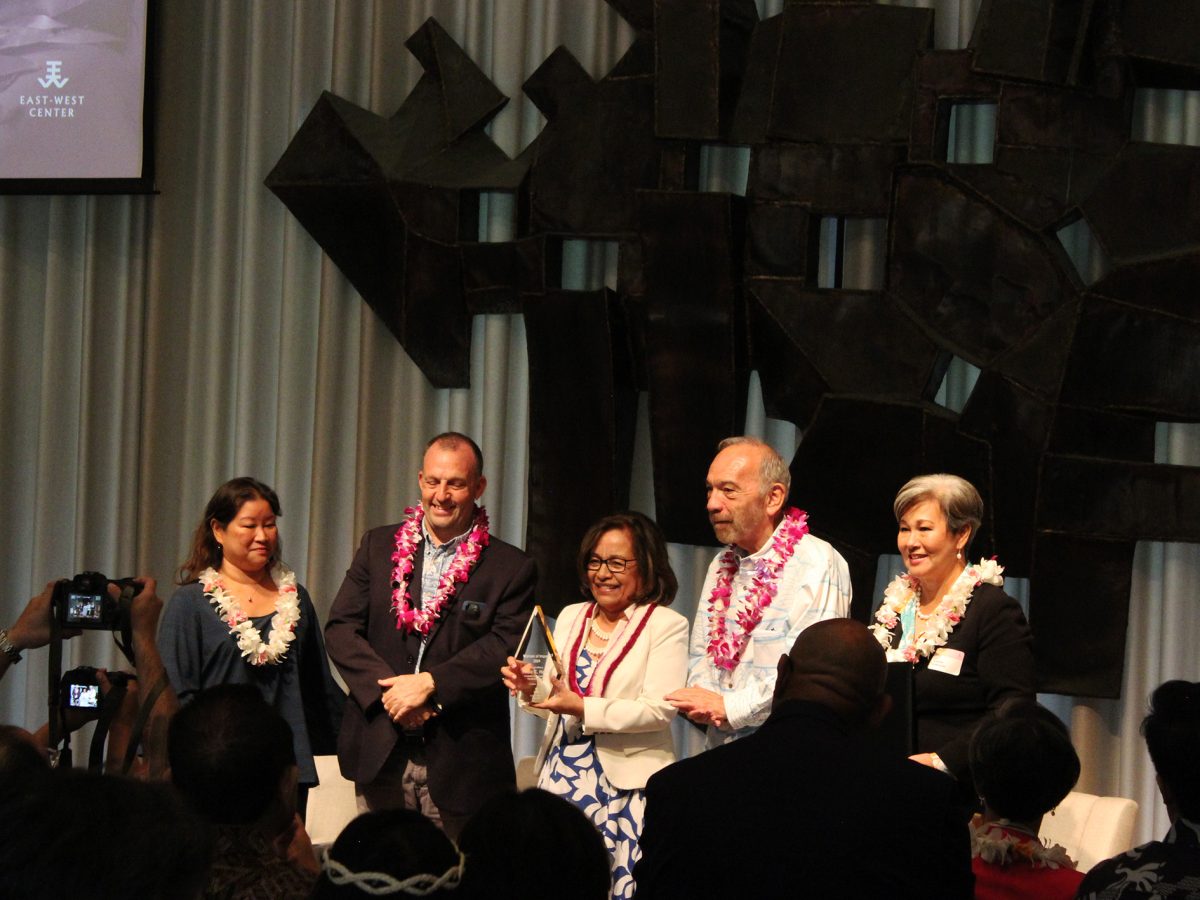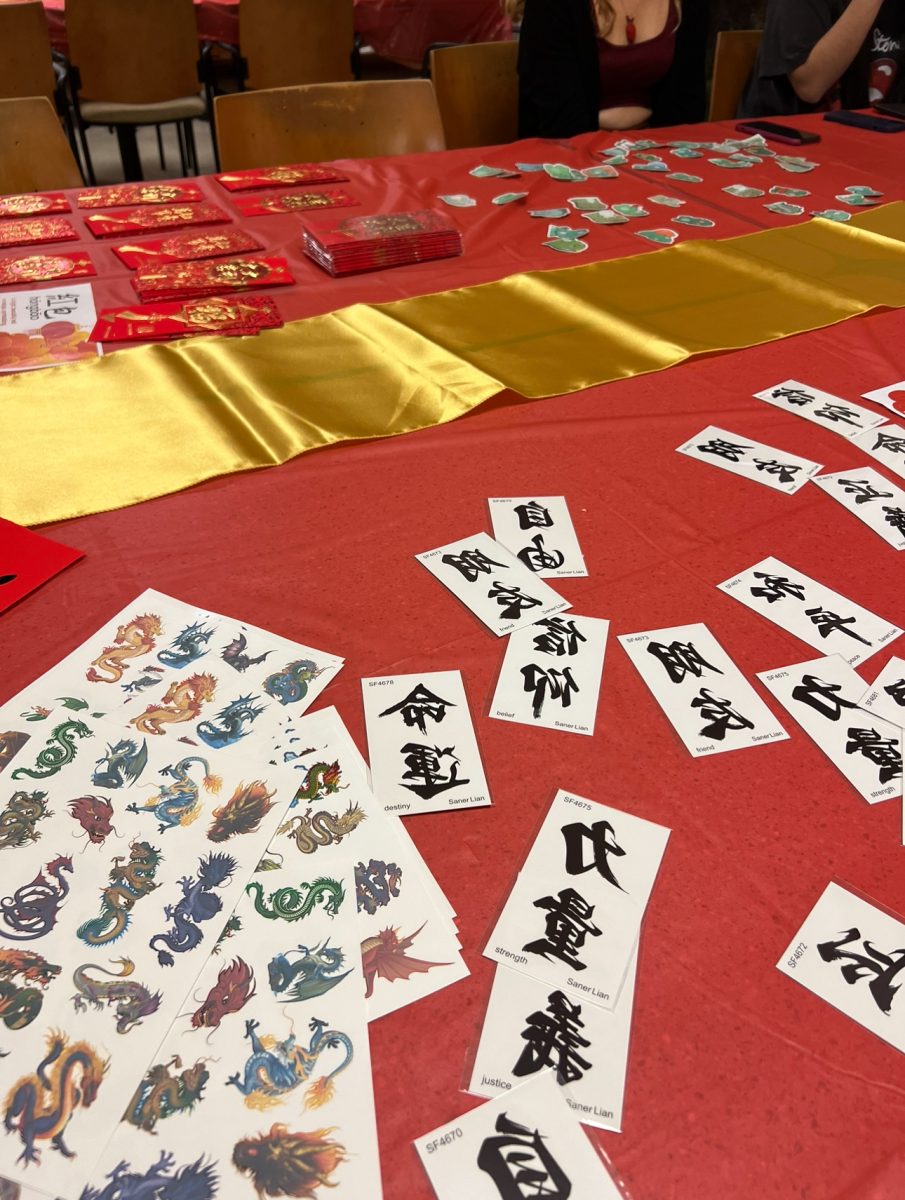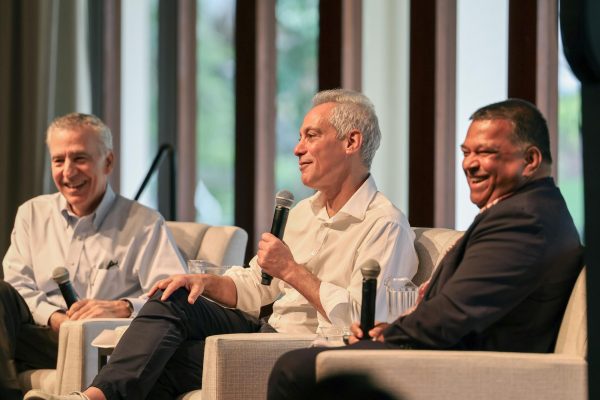
Students from all over the world attended — and tuned in to — a town hall Monday morning at the East-West Center to discuss coordination and goodwill among the U.S., South Korea and Japan.
The event, touted as a milestone of “Trilateral Cooperation,” also involved participants from the University of Hawaiʻi, the U.S. Ambassador to the Republic of Korea, Philip Goldberg, the U.S. Ambassador to Japan, Rahm Emanuel, and other members of the U.S. embassies in Tokyo and Seoul. Students from South Korea and Japan joined the event as well through a live stream.
Monica Orillo, a master’s degree student in the UH Mānoa Asian Studies program, moderated a Q&A session that featured Goldberg and Emanuel. In the process, she encouraged all students to pay attention to foreign affairs.
“All of these larger questions determine a policy, and that policy trickles down to funding,” Orillo said. “Are they funding climate research? Are they finding student exchanges? It is more than where the money comes from but also affecting different opportunities to students.”
Questions to the ambassadors included asking about nuances of the Japan-Korea relationship to how this alliance stands in opposition to the trilateral partnerships formed among North Korea, China and Russia.
In August 2023, leaders from Japan, the Republic of Korea and the United States met at Camp David in Maryland, which is a retreat area for United States presidents. At that meeting, President Joe Biden, Prime Minister Kishida Fumio of Japan and President Yoon Suk Yeol of South Korea emerged with a pledge to work better together. This town hall is part of a series of events intended to build such relationships.
In addition, an international career fair was offered at the East-West Center Monday after the town hall concluded, including representatives from the Japanese Exchange and Teaching (JET) program.
“When I found out about this (event), I knew I needed to be here,” said Hadiya Knight, a master’s degree student in the Korean Flagship Program and an East-West Center affiliate. “As I’m figuring out what I want my career to look like in the future, I need to have all of what is available to me out in the open and know more about it.”
She added, “We all have different backgrounds. We all have different world views, but if we’re able to talk, it breaks down what a lot of those barriers and assumptions” are among people across borders.
To continue these types of cross-cultural community discussions among these countries, the East-West Center next will be helping with a trilateral youth summit in Busan, South Korea, this summer, from July 11 to 17.
